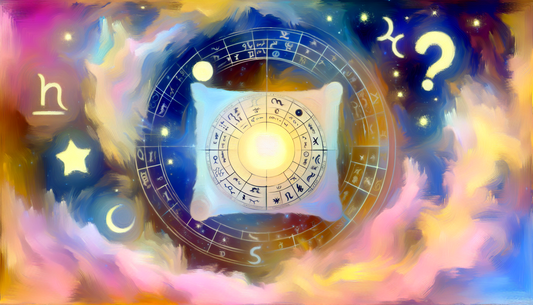The world of astrology is vast and varied, with numerous systems that have evolved over millennia. Among these, Vedic astrology, also known as Jyotish, and Western astrology stand as two of the most prominent. Each offers unique insights into our personalities, relationships, and life events, but they also differ significantly in their approaches and methodologies. Let’s delve deeper into these two fascinating systems to understand their key differences.
Origins and Philosophical Foundations
Vedic astrology, originating from ancient India, is rooted in Hindu philosophy and the Vedas - the oldest sacred texts of India. It stresses the importance of karma and reincarnation, suggesting that the positions of celestial bodies influence not only your present life but also your past lives and future rebirths. The system emphasizes a spiritual approach to life and destiny.
On the other hand, Western astrology has its roots in ancient Babylon and Greco-Roman traditions. It has developed over the centuries, synthesizing various cultural influences. Western astrology tends to focus on the psychological aspects of astrological signs and movements. Rather than emphasizing karma, it often encourages individuals to understand their traits and embrace their potential for personal growth.

Zodiac and Chart Calculation
One of the most significant differences between Vedic and Western astrology is in how each system calculates the zodiac and interprets birth charts.
Vedic astrology uses the Sidereal zodiac, which is based on the actual constellations in the sky. It accounts for the precession of the equinoxes, resulting in the signs shifting over time. As a result, when you hear your astrological sign in Vedic astrology, it often differs from what you would identify with in Western astrology.
In contrast, Western astrology employs the Tropical zodiac, which is aligned with the seasons rather than the fixed stars. This zodiac is based on the Earth’s relationship to the sun, meaning that the signs do not necessarily correspond with the positions of the constellations. Thus, your Western sign might align with seasonal traits, while your Vedic sign may relate more to your cosmic imprint.
Interpretive Techniques
When it comes to interpretative techniques, both Vedic and Western astrology provide rich insights but through different lenses.
Vedic astrology emphasizes planetary placements, aspects, and the nakshatras (lunar mansions) that provide a deeper level of analysis. It often involves complex calculations and specific methodologies to ascertain the strength and weaknesses of various planetary influences on an individual. Additionally, Vedic astrology frequently incorporates the use of dashas, or planetary periods, which dictate the timing of events in one's life.
Conversely, Western astrology primarily focuses on the sun, moon, and rising signs. It interprets configurations of the planets and their aspects with an emphasis on psychological and emotional attributes. The incorporation of houses and transits also plays a pivotal role in Western astrological analysis, providing insights into various life areas.

Practical Applications and Modern Trends
Vedic astrology often lends itself to Vastu (the traditional Indian science of architecture) and Ayurveda (the holistic approach to health), weaving astrological insights into daily life and well-being. Many practitioners in India utilize Vedic astrology for remedial purposes, such as gemstones or rituals, to mitigate negative planetary influences.
Conversely, Western astrology has gained significant traction in modern times, finding its way into popular culture, especially within lifestyle and wellness sectors. From horoscope columns in popular magazines to astrology apps, the Western approach is more about self-discovery, fostering a greater understanding of oneself and relationships with others. Moreover, the concept of birth chart readings as a tool for personal development has surged in popularity.
Community and Cultural Influence
The communities formed around Vedic and Western astrology reflect their cultural backgrounds. Vedic astrology is often deeply ingrained in Hindu culture, with rituals and practices intertwined. Many followers depend on Vedic astrologers for guidance on marriage, career choices, and major life decisions.
In contrast, Western astrology has notably expanded into a broad community where astrology serves as a conversation starter and a way to foster connections. Social media platforms have amplified the visibility of Western astrology, creating networks of enthusiasts who share and discuss their astrological insights and experiences.
Conclusion
While Vedic and Western astrology share the fundamental goal of understanding human existence and behavior through celestial influences, their methods, interpretive approaches, and cultural contexts greatly differ. Exploring these two systems can offer an enriching perspective on astrology as a whole, inviting self-reflection and a deeper understanding of life’s mysteries. Whether you feel drawn to the spiritual insights of Vedic astrology or the introspective essence of Western astrology, there’s no denying the profound allure and wisdom these systems maintain in our lives.
Astrology, in all its forms, continues to shine brightly, providing a cosmic compass that guides us through life’s journey. As you explore your own path within these traditions, may the stars illuminate your way!














